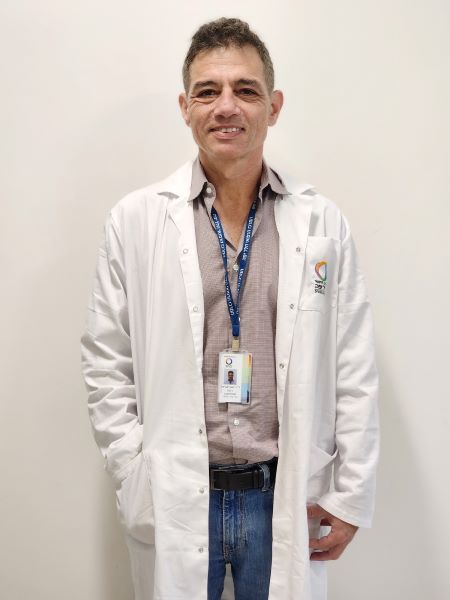|

Dr. Yoav Avidor |
Hillel Yaffe Medical Center has recently launched a new service for early detection of prostate cancer in men. As part of the service, the patient undergoes an initial examination, which includes a digital rectal exam, during which the doctor examines the prostate gland to identify any possible abnormalities. In suspicious or borderline cases, blood tests and additional imaging tests will be recommended and, when necessary, samples of prostate tissue will be taken in an MRI-guided prostate biopsy.
Prostate cancer
The prostate is a small gland in the male body, located between the bladder and the rectum, surrounding the urethra, which carries urine from the bladder to the penis and is wrapped in a layer of muscles and fibers. The main function of the gland is to produce semen, which mixes with the sperm produced in the testicles. The prostate also produces a protein called prostate-specific antigen (PSA), which helps liquefy the semen during ejaculation. Prostate cancer develops when prostate cells begin to grow out of control.
“Prostate cancer usually develops very slowly, and therefore in many cases does not cause symptoms or any external signs. Symptoms appear when the tumor has already grown and started to apply pressure on the urethra. Since prostate cancer develops slowly, the appearance of symptoms may occur even years after the tumor itself has developed. However, there are cases in which the disease develops quickly and may spread to other organs in the body, particularly the bones and lymphatic system,” says Dr. Yoav Avidor, a physician in Hillel Yaffe Medical Center's Urology Department.
Early detection saves lives
Dr. Avidor added that early detection of the disease significantly increases the chances of recovery. “In most cases, a man diagnosed with prostate cancer at an early stage of the disease has a significantly higher chance of recovery. The tests for early detection and development of innovative treatments in the field have led to a dramatic decline in the rate of deaths from the disease, up to even 40%-50% since the early 1990s. Today, we have the ability to diagnose prostate cancer at very early stages of the disease, at least in 70% of patients.”
Regarding treatment, there are a variety of treatments for prostate cancer, starting with active monitoring in cases of cancer with a small volume and low malignancy to robotic removal of the prostate, radiation therapy or focused treatment of the prostate by freezing (cryotherapy).
Are you over 50? Come get tested
In short, Dr. Avidor says, “Men over the age of 50 are at risk of developing prostate cancer. Prostate cancer is only rarely diagnosed in younger men. According to American Cancer Society guidelines, men should have their first prostate exam around the age of 50, and when there is a family history, it is recommended to have an exam even earlier, at the age of 40.”
The Early Detection Clinic is one of the services provided by the hospital’s Urology Division. The clinic offers a comprehensive assessment of men's health, with a focus on urination disorders, bladder cancer, kidney cancer, overactive bladder, urinary tract stones, sexual dysfunction and more.
To contact the department and schedule an appointment at the clinic, call: 04-7744663.











.jpg?BannerID=39)

